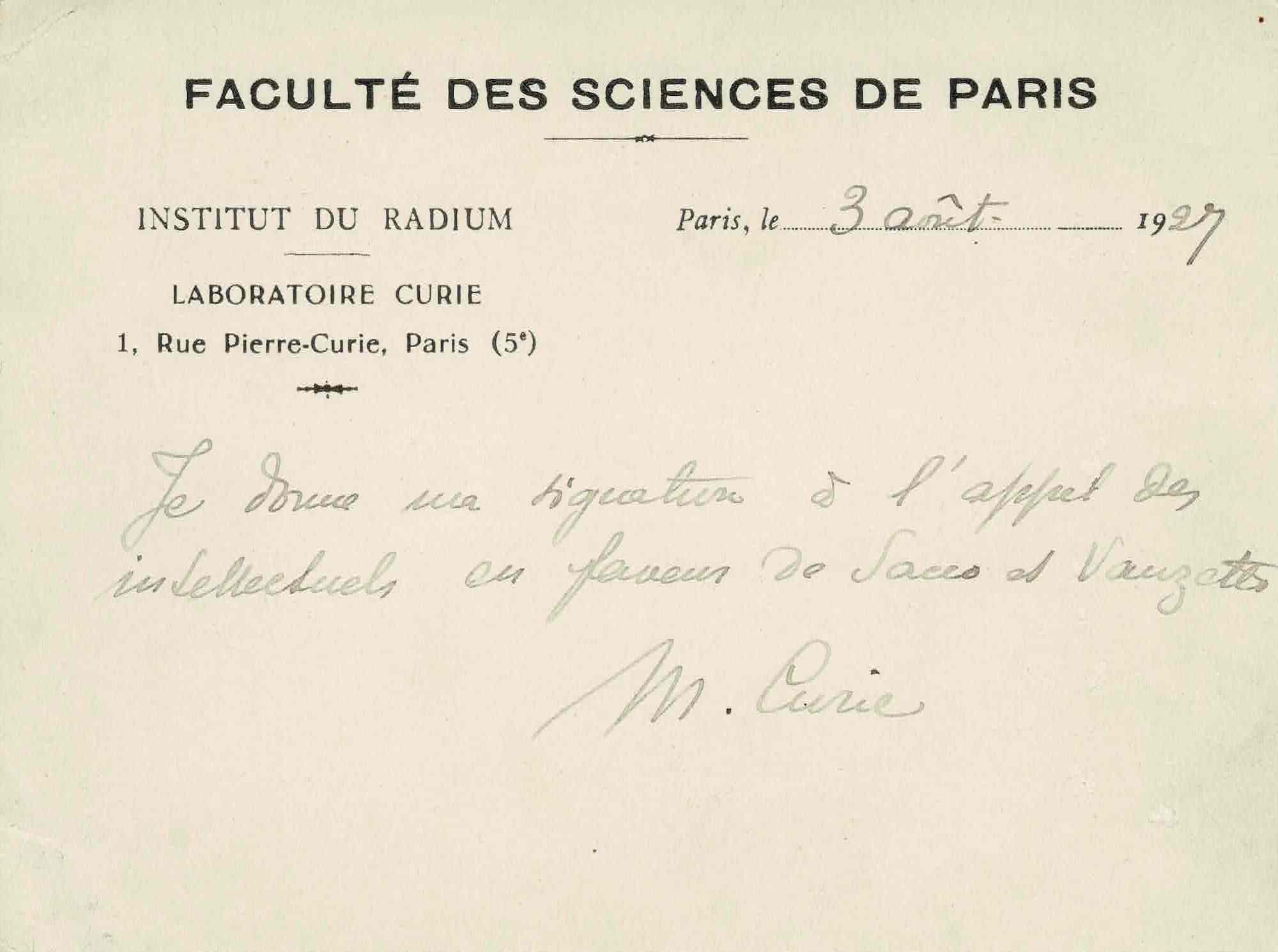Marie Curie (1867.1934)
Signed autograph card.
An oblong octavo page on letterhead from the Radium Institute at the Faculty of Sciences of Paris.
Paris. August 3, 1927.
“I give my signature to the appeal of intellectuals in favor of Sacco and Vanzetti. Mr. Curie. »
__________________________________
A true myth of the 20th century, Marie Curie left her mark on our History with the giant steps she made in modern science. Her discoveries on radioactivity and polonium earned her the Nobel Prize in Physics in 1903, then in Chemistry in 1911. If Marie Curie remains remembered, it is also because, behind the emeritus scholar, stands a woman of commitment whose actions and positions are models of righteousness and courage.
Marie Curie rarely left her reserve and her modesty prevented her from expressing her opinion on public matters outside the family circle. However, his voice was heard in 1921. At the request of his colleague, the physicist Herta Ayrton, Curie joined a protest against the incarceration of those responsible for the suffragist movement in London.
In France, she led the same fight in favor of women's right to vote, deciding to publicly deny Louis Barthou who had claimed, in the Senate, that she was hostile to this right. She wrote thus, in July 1932, to Louis Martin, president of the parliamentary group in favor of women's rights: "I am, it is true, in the habit of abstaining from any political discussion, as well of course this question as well as others, which are not in the scientific domain. However, without commenting on the modalities of the attribution of political rights to women, I think that the principle is essentially fair and that it should be recognized. »
Another exception to this rule of discretion took place in 1927 (subject of the document we present here). While her position against the death penalty was known, Marie Curie no longer wished to express herself on the subject. However, alerted by her daughter Irène Joliot-Curie, she agreed to support the Italian anarchists Nicola Sacco and Bartolomeo Vanzetti unjustly condemned in the United States.
Indeed, on July 3, 1927, Irene wrote to her mother: "Speaking of newspapers, were you not asked to participate in the appeal of French intellectuals in favor of Sacco and Vanzetti? This is something you could do given that the appeal is directed against the fact of a death sentence which has weighed on two men for 6 years, without prejudging their innocence or their guilt; as you rarely give your signature, and as you are a member of the intellectual cooperation commission, a word from you could be of some use. If the death penalty is ever to be abolished, it will after all be when we know that it does not have the approval of everyone, and as you have an extremely firm opinion in this regard, I think that there would be no harm in making it known. »
Marie thus signed the appeal of French intellectuals demanding a review of the conviction pronounced against the two men.
The appeal and international mobilizations remained in vain; Sacco and Vanzetti were executed in the electric chair at Charlestown Prison, near Boston, on the night of August 22 to 23, 1927.

